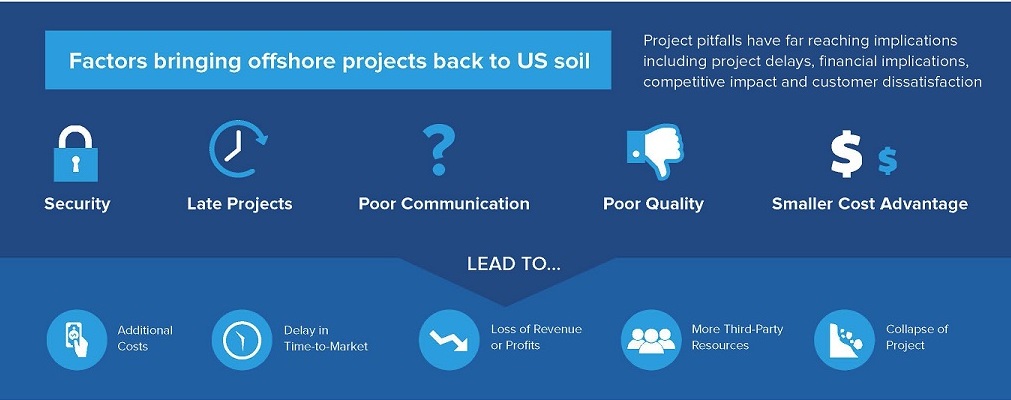What if you discover a fatal error or an exploit in your app? What if your app is down during a crucial time? As a developer, how you react to a crisis can mean the difference between minor blip and an embarrassing or costly company blunder. Here's a crisis management plan to get things right when they go wrong ...
Dev Culture
There is no "right" culture for DevOps, but characteristics such as open communication, high cooperation, collaboration, respect, and trust are essential. If your organization does not have these characteristics, they must be developed. Culture is learned, not inherited. It must be genuinely nurtured by everyone from executive management on down the line. Here are some hacks to help develop a positive DevOps culture ...
DevOps experts — analysts and consultants, users and the top vendors — offer thoughtful, insightful, often controversial and sometimes contradictory predictions on how DevOps and related technologies will evolve and impact business in 2017. Part 6, the final installment, covers DevOps tools and DevOps people ...
DEVOPSdigest asked experts across the industry – including analysts, consultants, vendors and even users – what they think is the most important cultural change an organization can make to ensure DevOps success. The result is a broad range of answers that delves deep into what DevOps is really all about. Part 4 covers development and testing ...
"Culture Change" is a phrase that is often used – maybe overused? – when talking about DevOps. The term culture change does not speak for itself, however. What exactly are we talking about when we say that DevOps requires a culture change? That question is what the DevOps industry experts endeavor to answer in this new list of Top Culture Changes to Make DevOps a Reality. DEVOPSdigest asked experts across the industry – including analysts, consultants, vendors and even users – what they think is the most important cultural change an organization can make to ensure DevOps success. The result is a broad range of answers that delves deep into what DevOps is really all about. Part 1 covers the executive and management perspective ...
In spite of the increasing adoption of agile and DevOps initiatives, a recent Tasktop survey identified the need for tools — that increase coordination in the software delivery process — to have stronger alignment with customer and business needs ...
The rapid growth of DevOps has resulted in huge demand for skilled DevOps professionals. As companies work smarter and introduce new technology, they’re increasingly looking for people who can enhance their technical capacities and drive development efficiencies in the process. But what skills do you need to succeed in the world of DevOps? ...
A recent Gartner survey found that 41 percent of surveyed IT professionals believe their IT organization to be ready for the digital business of the next two years ...
The IT outsourcing industry is evolving faster than we think. In the fast-paced digital age, organizations continue to leverage their business strategies along with IT outsourcing to meet the growing demands of their customers. This blog takes a look at the trends that can potentially shift the continuously evolving industry of IT outsourcing. With a focus on security, cloud computing, and multi-speed IT, here are the trends to watch out for in 2016 ...
As hybrid IT environments become the new norm, many businesses and IT teams are left wondering what is the right combination of cloud and on-premises integration tools. While the answer is different for everyone, the following six questions provide a foundation to start the conversation ...
Using DevOps principles when dealing with incidents and outages can help organizations avoid common pitfalls many companies encounter when a disruption in service inevitably occurs. Here are five DevOps practices that can keep a crisis from getting worse ...
CapTech provides tips for selecting the right partner for successful digital transformation ...
Key findings of a new study by Automic indicate steady growth of the tool stack, how unstable and unrealistic vendor lock-in has become and the importance of managing a coherent deployment pipeline, especially as many organizations begin to adopt and implement DevOps focused initiatives ...
There is a major disconnect between what is expected of IT by the business and what IT teams can actually deliver, according to the 2016 Connectivity Benchmark Report from MuleSoft ...
Many software development teams struggle with an overwhelming and seemingly never-ending influx of new requests. Different business groups such as sales, account management and customer care will often demand new features or product changes, particularly in large enterprise organizations. This can lead to frustration as development teams are overloaded and stuck working to put out fires. It’s important to have a clear product roadmap with solid release planning in place. A time box release cycle can introduce some stability and predictability for IT team, business team, and clients ...
DevOps is permeating the enterprise as both a technical and professional movement. If able to adequately manage a career in DevOps, it can be highly rewarding and fulfilling to have a profound impact on how your business operates and how your teams work together. So how do you get on the path to success with a career in DevOps? ...
Gene Kim (co-author of The Phoenix Project and other seminal works) remains intimately connected to the movement's real-world standing through his continued thought leadership work. Based on this close connectivity to practitioners – those with both advanced and more nascent initiatives – there's perhaps no better person to ask which milestones, challenges and performance metrics represent the hallmarks of today's existing DevOps adopters. In a recent interview, Gene shared some interesting feedback on what he's hearing out on the conference circuit and elsewhere in speaking to various stakeholders about their current DevOps strategies ...
The advent of DevOps has completely changed the way we build and deliver software and, inevitably, creates unique challenges for developers juggling a wide range of tools successfully. JFrog recently conducted a survey to gain insights into how developers and DevOps engineers use different tools and technologies and the challenges they encounter in their daily work. Upon comparing these findings to those of a similar survey conducted in 2013, things seem to be getting better for developers and DevOps, but the advances are not evenly distributed, as some areas have seen dramatic improvements while others have remained relatively stable ...
Only 20 percent of organizations that have attempted to implement DevOps have fully deployed it, according to the results of a new global study, commissioned by CA Technologies. The research also found that these "advanced" DevOps adopters were more likely to report that their digital initiatives contributed to competitiveness, customer retention and top- and bottom-line results ...
Adoption of cloud technologies and DevOps methodologies continues to grow as established companies seek to transform their businesses in order to better serve modern customers, according to a survey conducted by NetEnrich. And yet, despite these advances, enterprise IT departments remain challenged to keep pace with the demands of business users for new products and services. The reason: IT is spending too much time on day to day systems maintenance, and internal teams lack the skills necessary to deploy, manage, and optimize cloud and DevOps environments ...
Based on data gathered from the Puppet Labs 2015 State of DevOps Report, the DevOps Salary Report underscores the increasing recognition that adopting DevOps practices help organizations achieve better business results. Because DevOps makes such a difference, people with DevOps skills are in high demand, and as a result, DevOps engineers make noticeably higher salaries than most other IT practitioner job titles ...
In the field of financial services, transitioning to DevOps can be especially challenging for two main reasons. First, there is a strict separation of Development and Operations. Second, many executives and IT people believe that the software and hardware environments of financial services companies, particularly banks, are not compatible with DevOps. Enough with the challenges. Here are some practical ways for financial services companies and many other organizations to embrace DevOps successfully ...



















